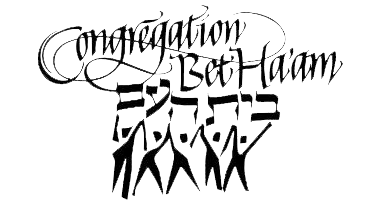by Jane Sloven
The Kabbalists teach that everything we do stirs up a corresponding energy in other realms of reality. When we remain cognizant of this mystical system, we are careful about what we do, say, or even think, for we know that everything is interdependent; we know that a seemingly insignificant gesture could have weighty consequences. –God is a Verb by Rabbi David A. Cooper (p.132)
Selichot are prayers for forgiveness. We are most familiar with the Selichot prayers in the High Holiday liturgy. We recite them when we gather together on Rosh Hashana and Yom Kippur seeking forgiveness for ourselves and our community, hoping to be inscribed in the Book of Life for another year.
These prayers are part of the process of Teshuva, which begins in the month of Elul and ends when the gates close at the completion of Yom Kippur. During this time, our tradition instructs us to engage in a thoughtful review of the ways we have lived in the past year, examining how we have missed the mark, and resolving to do better so that we can enter the new year committed to a life that more closely comports with our values.
One’s actions, particularly deeds of lovingkindness, profoundly impact upon the universe. Minor actions can have significant consequences …everything happening to us is connected with a complex weave of variables. Moreover, angelic forces are associated with our thoughts, words and deeds. –God is a Verb; Rabbi David A. Cooper (p.28)
We are blessed to have this annual opportunity to engage in self-reflection, to soften around the hurts we have suffered, to release resentments, grudges, and self-righteousness — and through this kind of preparation — offer heartfelt apologies to those we have hurt and honestly accept the apologies of others. Compassion for ourselves and others, a quality crucial to living a kinder life, can become more accessible through the rituals of Elul, Rosh Hashana, and Yom Kippur.
The Jewish mystical point of view is that creation is based upon compassion and lovingkindness. –God is a Verb; Rabbi David A. Cooper (p. 244)
Another opportunity to mindfully enter or to continue this process is offered by our Selichot service. I co-lead this service with Daniel Oppenheim and Joseph Py. Selichot worship takes place on the Saturday evening prior to Rosh Hashana. This year the date is September 16th, and we begin our worship at 7:30.
In a sanctuary filled with candlelight, we begin with Havdalah. We change our Torah covers to their holiday robes of white, and join in carefully selected Selichot prayers, melody, psalm, and poetry. Our readings and drashes illuminate the origins of our prayers. We gain a clearer understanding of the connections between our history and our holidays. We gain insight into a template set by our mystical tradition’s creation story — one of error and shatterings, followed by rectification and repair. We truly hear the voice of the shofar. We sink into a guided meditation, reviewing the ways we may have missed the mark in the year that is ending and preparing ourselves to both ask for forgiveness and to offer it.
…Deep spiritual work can open the gates of heaven. –God is a Verb; Rabbi David A. Cooper (p.28)
Our Selichot service offers spiritual preparation for the High Holidays. Please join us on September 16th at 7:30 PM.

